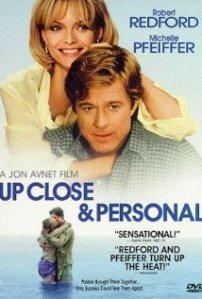The following deals with political science mumbojumbo.
DISCLAIMER: This does NOT serve as a replacement for reading Chapter 10.
PART 1
For the purposes of making this chapter easier to understand, I will run for President, as I plan to do one day anyway. In order to me to win, I have to take the initiative to raise money, appeal to voters, and win friends in high places. Parties used to have a big role in picking the President, but not anymore, so no matter which party I choose, I am the sole decider of my election.
First off, we have to acknowledge that less people care about congressional elections than presidential elections. Less people also vote in congressional elections, though they do more things for the people than the President. Members of Congress also aren’t blamed for the mess they’ve made, whereas the President always is. This is likely why 90% of Congress gets re-elected every two years.
If I run against the President in the election, I’m running against the incumbent, or the current office holder. The incumbent always raises a LOT of money. If the President is very likable, he can help candidates of his own party run for Congress and will probably be re-elected because of coattails— basically s/he’s well known. If I want to earn some coattails, I will need to be mentioned by someone in the presidential caliber, or just tell a reporter on the DL that I’m going to run for President. But since voters usually favor someone with military or gubernatorial experience, I’ll first have to enlist and serve some time in Lansing before announcing my bid.
But once my bid is announced, there will be a few main areas that my campaign will need to focus on:
- Money: I need to raise a lot of it. The individual limit for donations right now is $2,500, but we can get around that with a special interest group sponsoring a political action committee, which will raise money for me and spend it independent of my campaign (independent expenditures).
- Organization: I will need to use some of the billions of dollars I raise to pay for press secretaries and political strategists. I will also employ advisers to make me look smart and get volunteers to spread the word on how smart I am.
- Strategy and Theme: While running a campaign solely based on the fact that I’m Fred would be cool, a campaign based on fixing the economy or reforming Washington will most likely do better. The tone of the campaign could be positive or negative or it could change from day-to-day, depending on how I feel in the morning when I wake up, and the theme of the campaign could be based on the fact that I’m an honest, trustworthy, folksy kind of guy. The timing of the campaign refers to when I spend my money. I could choose to spend it all at once for name recognition or hold off until the big push into November. Since I have an obsession with hot babes, they’d probably be the target of my campaign so that whether or not I win, I’ll still ‘get some’ in the end.
When I run for President, I run in two elections: the primary and the general election. Only 20% of the VEP votes in the primaries and it’s usually only the ideological activists. In order to win the primaries, I’ll have to be more ideologically than I am right now and then switch to more moderate views to win the general election. There’s also a thing called a caucus in which party leader sit in a smoke-filled back room and decide which candidate to give electoral votes to. With luck and an anonymous donation of Cuban cigars, I’m sure to a few delegates!
If me or the person I’m running against both come off badly to the majority of centrist voters, they will vote in what is called a clothespin vote, where they pick the less objectionable of the two candidates…

One view of my photos on Facebook and I've lost every clothespin vote... and every vote for that matter.
A position issue is a issue that divides voters into opposing sides. Likewise, the candidates also take opposing views. I may support gay marriage while my challenger believes they will all burn in hell. A valence issue is something everyone can agree on and the candidates adopt similar positions to garner the most support. A great example would be an unpopular war. A candidate who thinks we should stay in the warzone for the next decade might as well drop out now. If were accused of being extramarital and smoking pot, like Billy Boy Clinton was in 1992, I might turn my entire campaign into the valence issue of the economy and act as if I can’t even hear what my accusers are saying.
Some people are naturally telegenic; they look good on TV. I’m one of them. By running short ads called spots, I will be able to sell my campaign to millions of viewers everywhere. But alas, spots don’t do as much as visuals do. They usually are shown in the news– you’ve seen them. It’s a candidate shaking hands in a restaurant or walking down a street. The visuals I hope to reinforce in viewers’ minds are me running into a burning building to save a cat or me giving mouth-to-mouth resuscitation to a hot babe I had believed was unconscious. Spots are most effective during the primaries and most people think visuals are reliable because they see them in the news.
Now comes one of the most important parts of my campaign: the debate. It’s been good so far. I’ve raised a far share of money and I’m ahead in the polls. But most people are still on the sidelines; they’re waiting to see how I do in the debate. Now’s my time to shine.
PART 2
Debates usually favor the less well-known candidate and give him/her more publicity. A gaffe during a debate or an interview could cost me the election. If I somehow confuse Hillary Clinton with Hilary Duff, I’m screwed! So I don’t gaffe during the campaign season, I should stick to stump speeches, which tie the campaign together in short, repeatable speeches. The debate itself used to be hosted by an outside source who would determine which candidates debated. Since 1996, the FEC has ruled that it can only be the two major candidates.
Everything comes back to money. But where I get it from varies. The top two sources are private citizens and interest groups. If I want, the feds can match every donation up to $250, but then there would be a limit on how much money I could raise. If I were running for Congress, I could get no such deal. To get the most money possible, I might call up Coldplay and ask them to do a concert for my political benefit.
After Nixon’s cronies broke into Watergate in 1972, campaigns have never been looked at in the same way. The most visible change has been campaign finance reform, first started in 1974. The new laws created a new limit on how much money an individual can give and offered unions and corporations, which had previously been unable to donate, a way to give to a campaign: the political action committee. PACs all together now get more donations than political parties or candidates themselves.
The aforementioned independent expenditures mean that a PAC can only spend money when the candidate has no approval of what’s going on. Soft money is somewhat similar in the fact corporations can give unlimited amounts to political parties as long as the money isn’t going directly to a candidate.
The biggest campaign finance reform came with the McCain-Feingold Act in 2002. With the act in place, no political party or candidate can accept soft money, but the donation limit was increased. Also, any independent expenditures can’t refer to any candidate in an ad sixty days before the general election. Non-political organizations can still say whatever the hell they want.
Many of the special interest groups have become 527 organizations which raise money for political purposes and are restricted by law from coordinating with a party or a candidate. From what political scientists can tell, there are some spooky patterns when it comes to elections: since 80% of all the votes goes to the two major parties, 20% of the votes sway the election. If the country is not doing well economically, wealthy people vote against the party in power.
There are also some major decisions I have to make during my campaign. My character means a lot of things. Am I seen as honest or reliable? Do I act presidential? Did I really run into that burning building to save a cat? I have to consistently come across as a rational, likable guy if I want to sit in the Oval Office one day.
I will also be judged on many others aspects. My vice presidential nominee will have to be just as beastly as I am, if not more so. But normally, no one cares about the VP. My lack of religion will probably frighten a few voters, so I’ll keep that on the DL. My stance on abortion won’t really make a difference either, as both supporters and opponents of it are balanced out.
PART 3
I’ve got this election in the bag… mostly. I’ve still got to analyze who specially decides the election. Though loads of people identify as Democrats, a lot less people vote as Democrats. So-called Democrats are known to cross the aisle whenever they feel like it. Voters, whether Democrat or Republican, also vote in their own interest. If I promise I will abolish all taxes, I could easily win the White House because no one wants to pay taxes. Is it realistic? Come on.
When the incumbent runs for re-election, s/he always runs on a campaign of retrospective voting, with a big emphasis on the good things that were done in office. Since I’m not the incumbent, I would have to run on a prospective voting campaign, meaning that people would vote for me because I promise to do great things. Retrospective is based in large part on the economy. If economic conditions are bad, voters are less likely to vote for the incumbent.
My campaign has done three major things. Right after I’ve been nominated at the conventions, the party base reawakens and is ready to campaign like hell for me. My campaign has also given voters that chance to see me Up Close and Personal. They’ve seen that I can handle pressure well and circumnavigate the seven seas that are debates. My core values and my character have also been on display as well. I haven’t run a lot of negative ads and most people feel like they know me.
The last step I have to take is finding a winning coalition. Though blacks are heavily Democratic, they don’t go to the polls in droves, so it really doesn’t make a difference in the election. Jews are usually Democrats as well and businessmen support the GOP. There is no other demographic with ardent political dispositions. So perhaps finding a winning coalition is all hogwash.
The election will have little effect on the policy of the country unless a political party wins a huge majority of most of the offices up for grabs. In a unitary system, the election essentially determines the outcome of the nation’s policies. Here, not so much, but keep in mind, it’s a good thing. Radical changes are usually never good.
And now my campaign has come to a close. I’ve been nominated by both parties and won the election in a landslide victory. What comes next is anybody’s guess.




this is legendary.
Posted by Beast | November 11, 2011, 10:43 pm